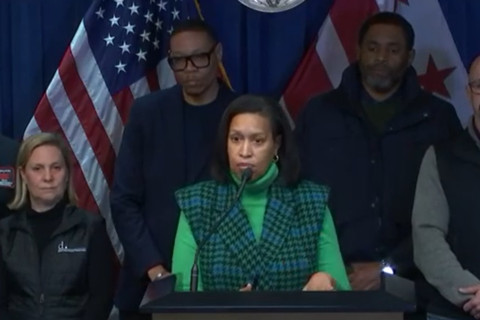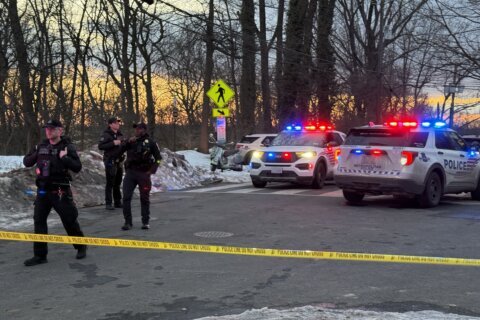A bill that would provide District residents with $100 a month for D.C.’s Metro system and dedicate $10 million annually to improve bus and transit service is on its way to a vote in the full D.C. Council.
The D.C. Council’s Committee on Transportation and the Environment on Monday voted to advance the Metro for DC bill, which was introduced in 2020 by Councilmember Charles Allen, D-Ward 6. The bill will now go to the full council for debate and vote, which may happen as soon as October.
If approved, the bill would make Metrorail and Metrobus ridership for D.C. residents 5 and older, of all income levels, either free or significantly less costly.
Allen said the result would bring more people back to the Metro system, while also expanding services for lower income riders who depend more exclusively on public transportation.
Following the committee vote, Allen took to Twitter to explain what the bill would provide.
Big step today! Metro for DC approved by Committee on Transportation. Thx @marycheh!
👉 $100/month for DC residents to ride WMATA 🚌 & 🚇.
👉 Millions each year into new Transit Equity Fund to improve service & reliability for riders in underinvested neighborhoods.
More 👇 pic.twitter.com/wd47O4b1Lx
— Charles Allen (@charlesallen) September 26, 2022
The bill comes at a time when WMATA is struggling to shore up financial security and bring back riders lost during the first part of the COVID-19 pandemic.
“For the essential worker who never stopped commuting and depends on the bus and train, this is going to be a much-needed boost to their family’s budget. And for residents who have more options, this will help bring more people back to the Metro,” said Allen.
The bill, if passed, would set up the District Resident Transit Subsidy Program, which would provide a $100 per month transit subsidy to residents delivered through a SmarTrip card.
If a specific rider does not use the full $100 in a given month, the card’s value would simply top up to $100 at the beginning of the following month.
The original bill had proposed income restrictions for the subsidy, favoring lower income residents. But after calculating the cost of citywide income verification for the program and other measures, Allen said it was cheaper to just provide the subsidy to all residents.
“I’m glad that we are going to make this a universal program from the start,” Allen said. “In addition to saving tens of millions of dollars administrative costs. This also just makes it easier for residents and low incomes to access the program.”
A previous analysis of the bill found that “67% of D.C. residents who use WMATA earn less than $90,000 and nearly 40% of likely beneficiaries earn less than $36,000 a year.”
$10M per year to improve transit
In addition to subsidizing ridership for District residents, the bill sets aside $10 million a year for D.C.’s Department of Transportation to “improve transit infrastructure and service in areas of high transit need or historically underserved communities,” according to the committee’s report.
Among other projects, that fund would go toward expanding the reach of the city’s Metrobus lines and improving infrastructure at bus stations and bus stops. For example, new bus-only lanes, building more weather shelters at bus stops and increasing the frequency of highly used bus lines.
Free, or subsidized public transportation is common in other parts of the world, including in Europe, Russia and South America. According to the council’s report, “at least 42 other U.S. jurisdictions provide fare-free transit or a subsidy for low-income riders.”
The report also says having the city subsidy brings equity to low income riders, as the “highest income riders are more than 5x as likely to have a workplace transit subsidy.”
That divide, the report says, also breaks down along racial lines, stating “white adult D.C. resident riders are more than 2x as likely to have a workplace transit subsidy than Black adult D.C. resident riders.”
The bill is continues upon previous D.C. initiatives, including the “Kids Ride Free” program which provides Metro fare for 50,000 of the city’s schoolchildren and the D.C. Streetcar, which has been free since it began operation in 2016.
While the Metro for DC bill is limited to D.C. residents only, At-Large Councilmember Christina Henderson said she hopes the approach could expend to neighboring Maryland and Virginia.
“As we modernize the system and look forward, I think this is one tool in our toolbox to help boost ridership and to add some additional funding,” Henderson said.
“If anyone from other jurisdictions are listening, it is going to require all of us, especially Maryland, Virginia, doing their part as well, but I’m glad today D.C. is taking this step.”








